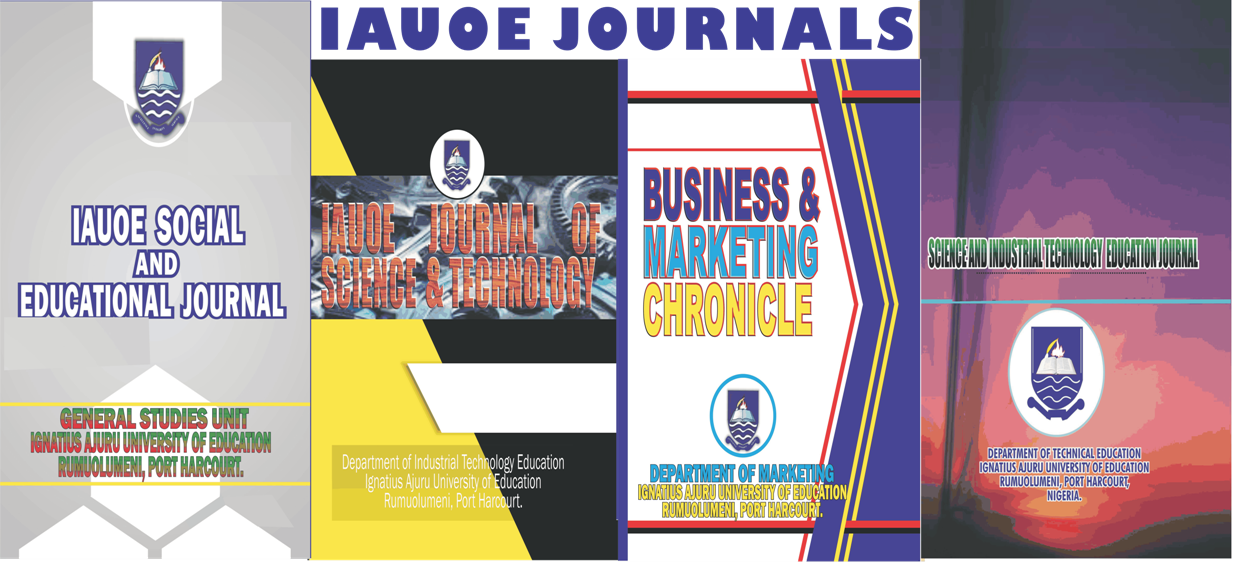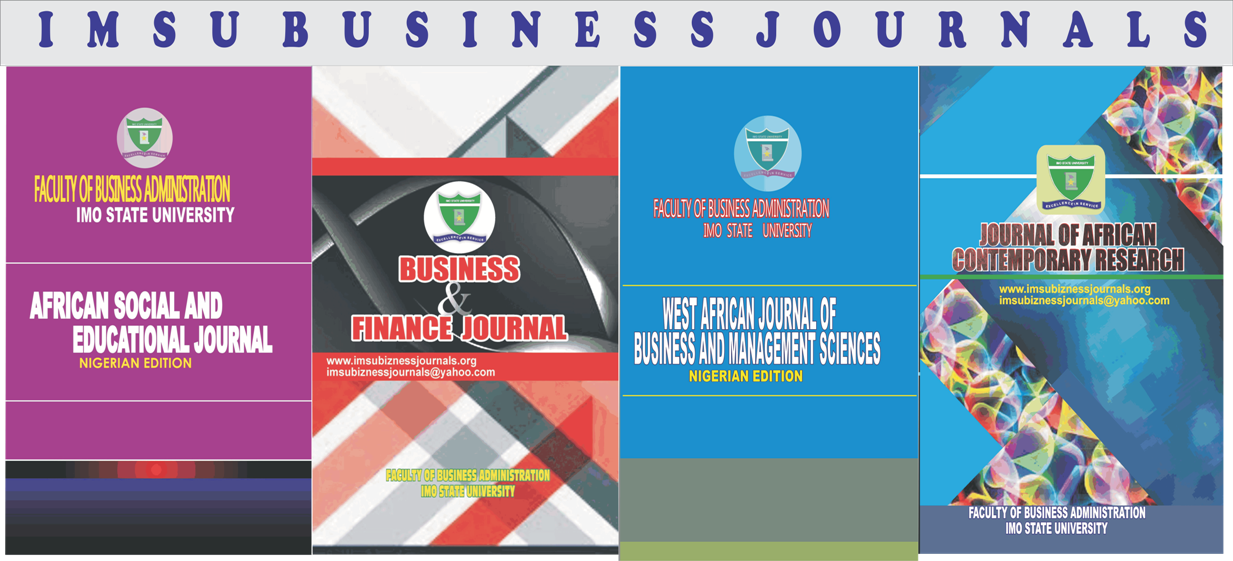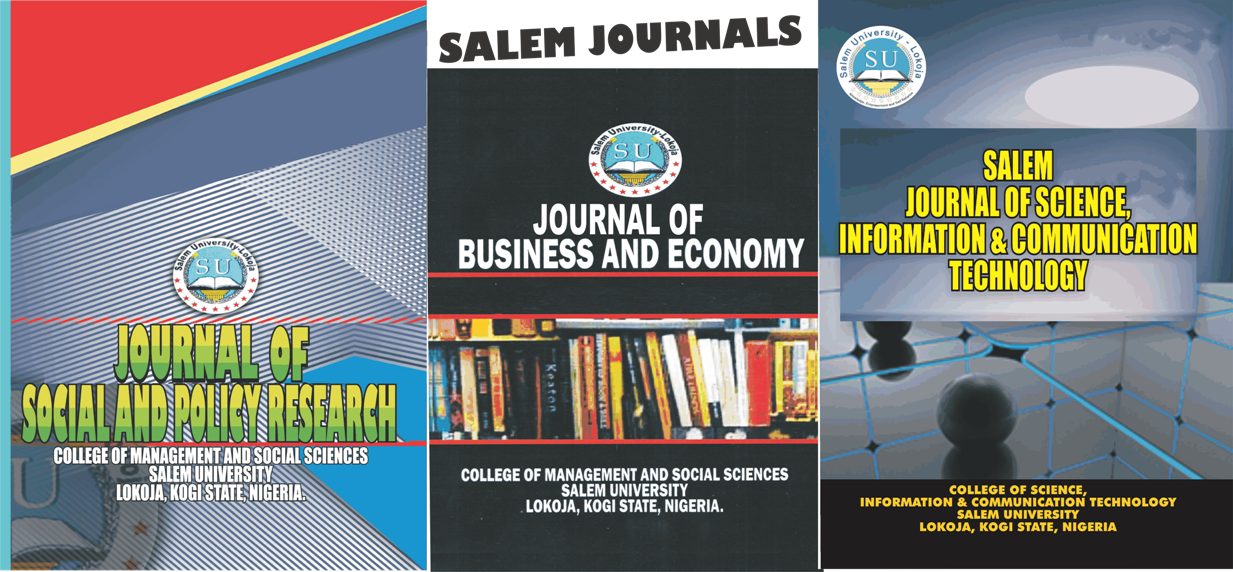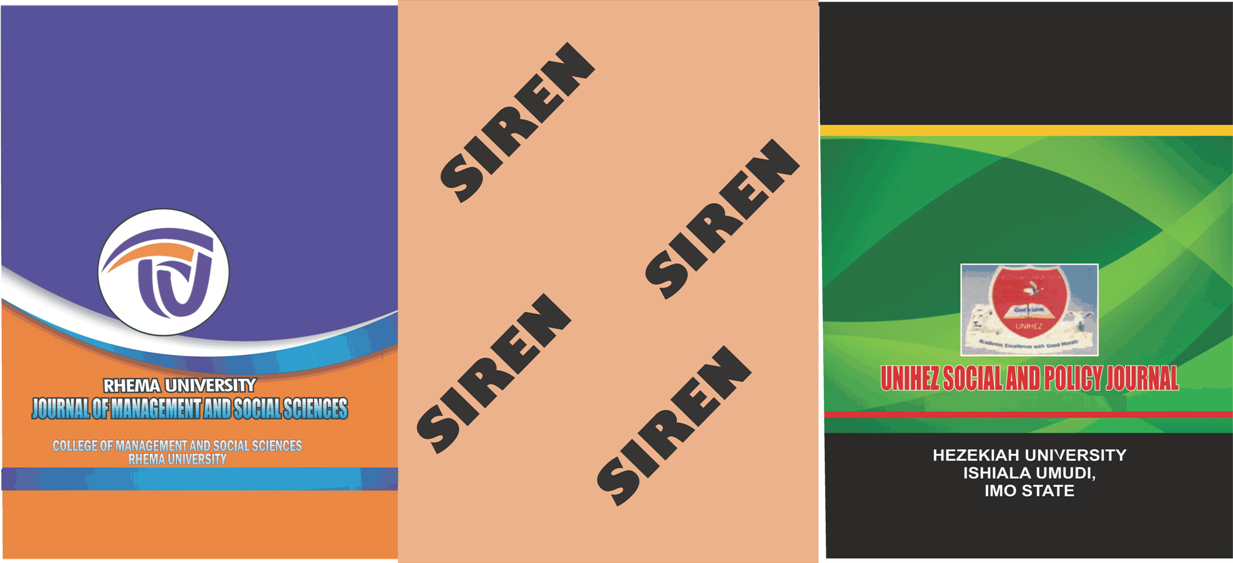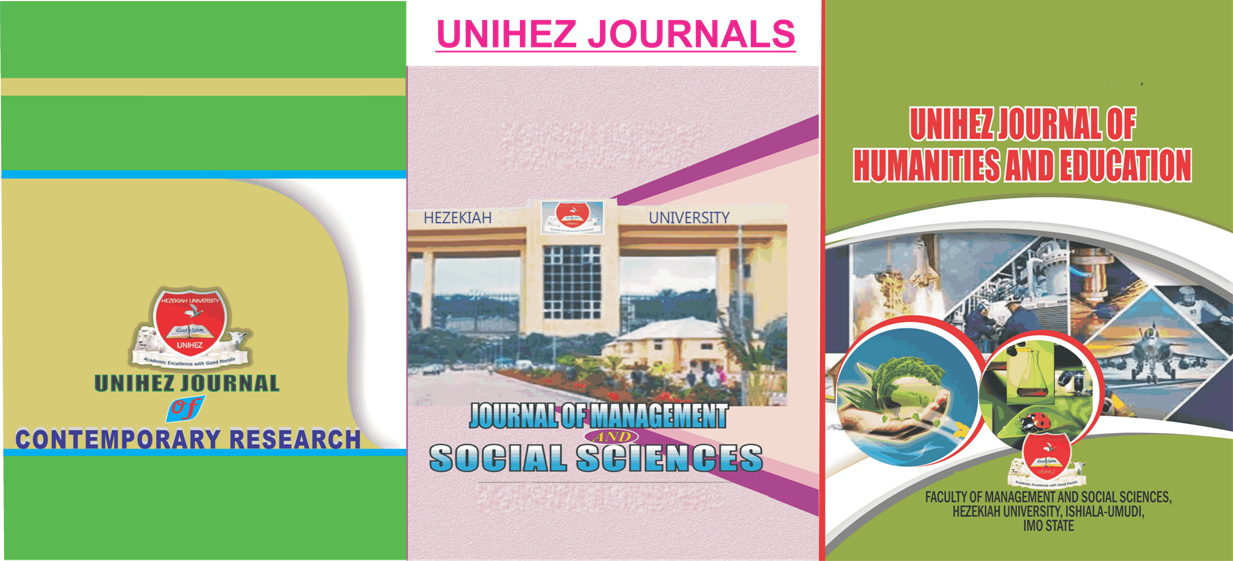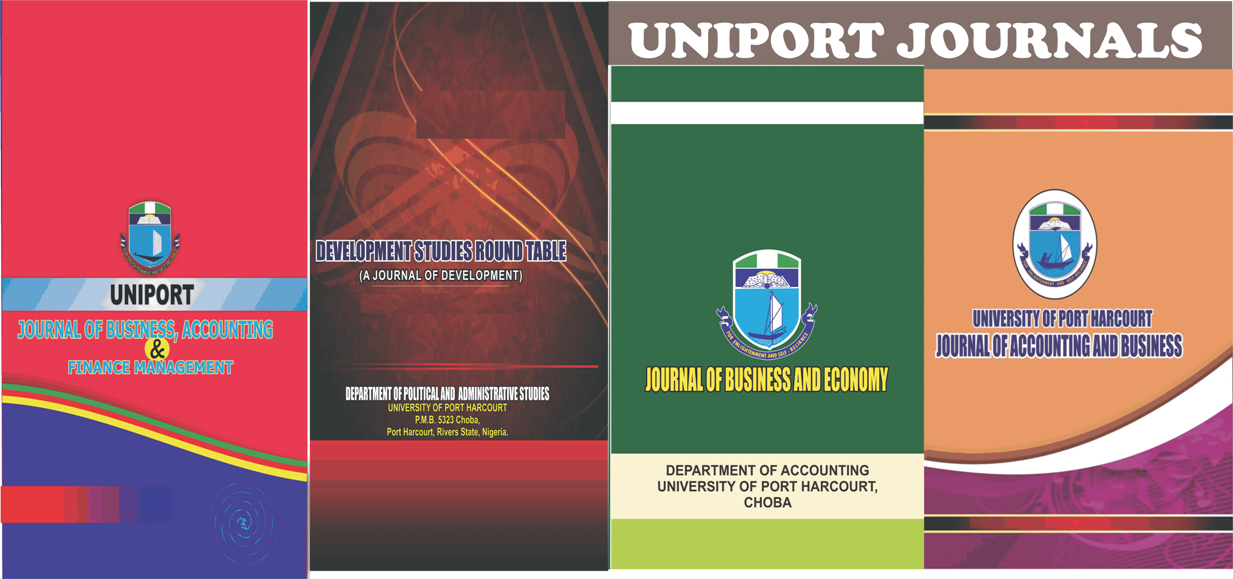2022 Archive
| 1 |
Title: THE EFFECT OF CORRUPTION ON CURRICULUM IMPLEMENTATION IN NIGERIA.pdf Author: Tupele-Ebi Enai Oyadonghan PhD. & Tamunodienye Mba PhD. Abstract: Abstract Curriculum is the bed rock of education; it specifies the methods, instructional instruments and the pedagogy of transferring knowledge from the teacher to the learner. When a curriculum is poorly implemented, the educational system will fail, and its policies and objectives will not be achieved. The poor educational system of Nigeria, characterized by lack of instructional materials, academic manpower and adequate infrastructural facilities for learning informs the educational doom currently facing the nation. Many scholars have associated this to poor educational policies and implementation. However, this study takes a critical look at the effect of the national problem of corruption on the implementation of curriculum in Nigeria, considering it as the root cause of the decay in the educational system of the nation. Primary date was collected with a questionnaire and distributed to two institutions of higher learning in Bayelsa State. Using the statistical package of social sciences (SPSS), a regression and correlation coefficient analysis was conducted to test the hypotheses. The results indicated an increase on the rate of corruption will lead to a more than average corresponding reduction on curriculum implementation. It is therefore recommended that financial accountability should be strongly entrenched in our educational systems. Key Words: Corruption, Accountability Curriculum, Implementation, Higher Education, Learning and Teaching View |
| 2 |
Title: FLIPPED CLASSROOM MODEL OF BLENDED LEARNING AND SENIOR SECONDARY SCHOOL STUDENTS’ PERFORMANCE IN ENGLISH LANGUAGE WRITING SKILLS IN RIVERS EAST SENATORIAL ZONE, RIVERS STATE.pdf Author: Juliet Oluchi Okoro, PhD Abstract: Abstract This study was conducted to investigate flipped classroom model of blended learning and Senior Secondary School Students’ (SSI) Performance in English Language writing skills in Rivers East Senatorial Zone, Rivers State. Three objectives, three research questions and three hypotheses were formulated to guide the study. The research design used for this study was quasi-experimental research design. The population consisted of fifteen thousand eight hundred and twenty six (15,826) (SSI) students in public senior secondary schools in Rivers-East senatorial zone. A Sample size of eight hundred (800) students was used for the study. The instrument for data collection was English Language Performance Test on Writing (ELPTW), validated by two experts in English Language department. The reliability of the instrument was established with test retest method and the scores were correlated using Pearson Product Moment Correlation and a coefficient of 0.76 was obtained. Descriptive statistics mean and standard deviation was used to analyses the research questions while Analysis of Covariance (ANCOVA) was used to test the hypotheses at 0.05 level of significance. The results showed that the flipped classroom model of blended learning made the students at a posttest stage to have greater effect than the pretest stage in the use of English Language writing skills. There is significant difference in pretest posttest scores of students in flipped classroom model of blended learning made of the students at a posttest stage showed a greater effect than the pretest stage in the use of grammar, vocabulary, and punctuation. The study concluded that there is significant difference in the pretest posttest of flipped classroom blended learning and conventional method; hence the null hypothesis was rejected. Flipped classroom model leads to academic achievement because it encourages students’ engagement, boost collaboration among students and critical thinking ability in English language writing skills. It was recommended that: parents should encourage their children by providing enabling environment for study at home so as to attain to their assignments, task and online materials before the main classes at school, Ministry of education should share free computers and other electronic system as it brings good result in students studying abilities and academic performance. View |
